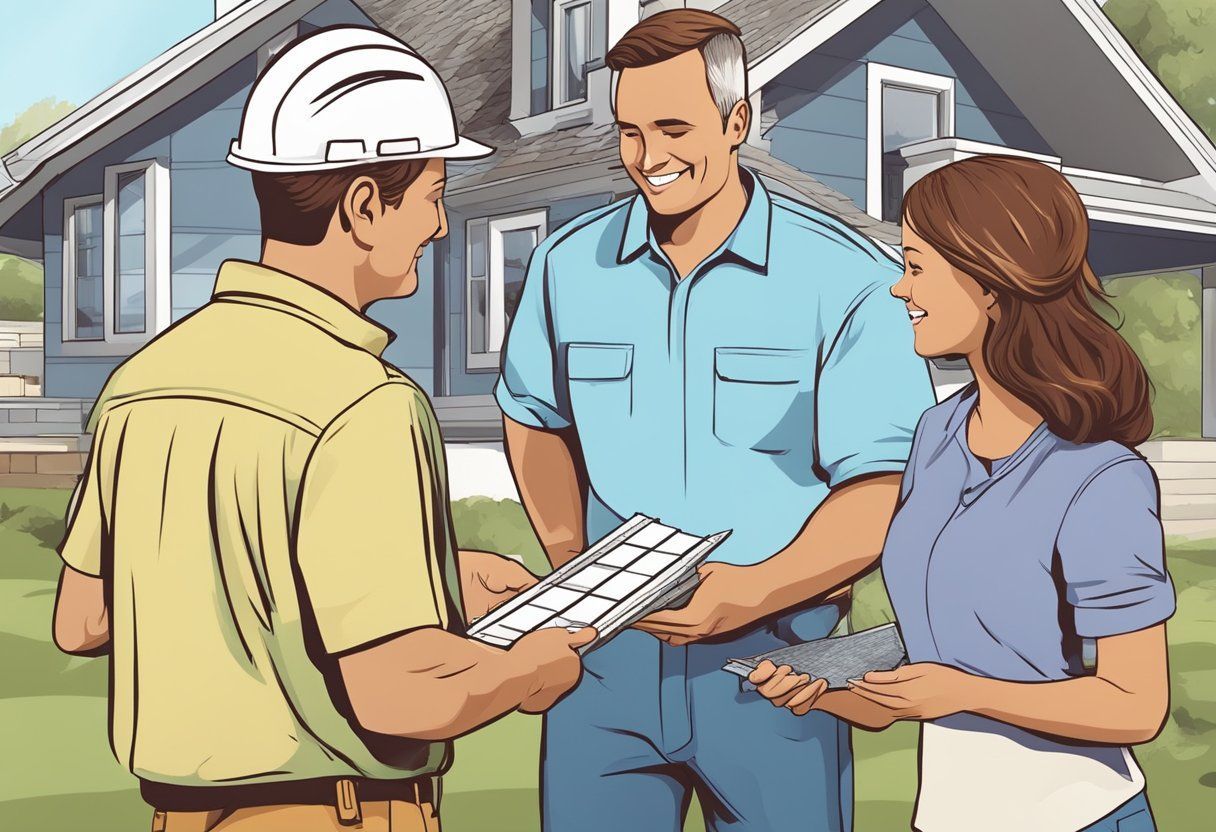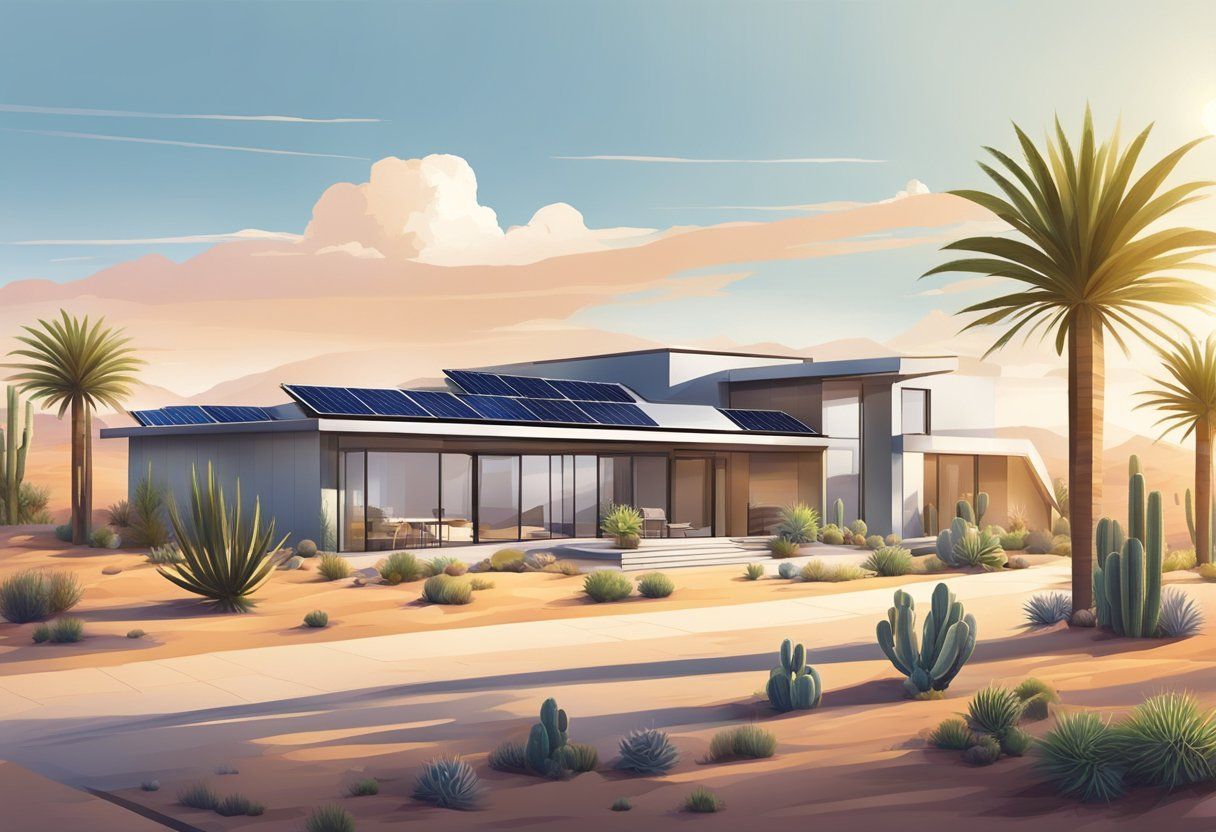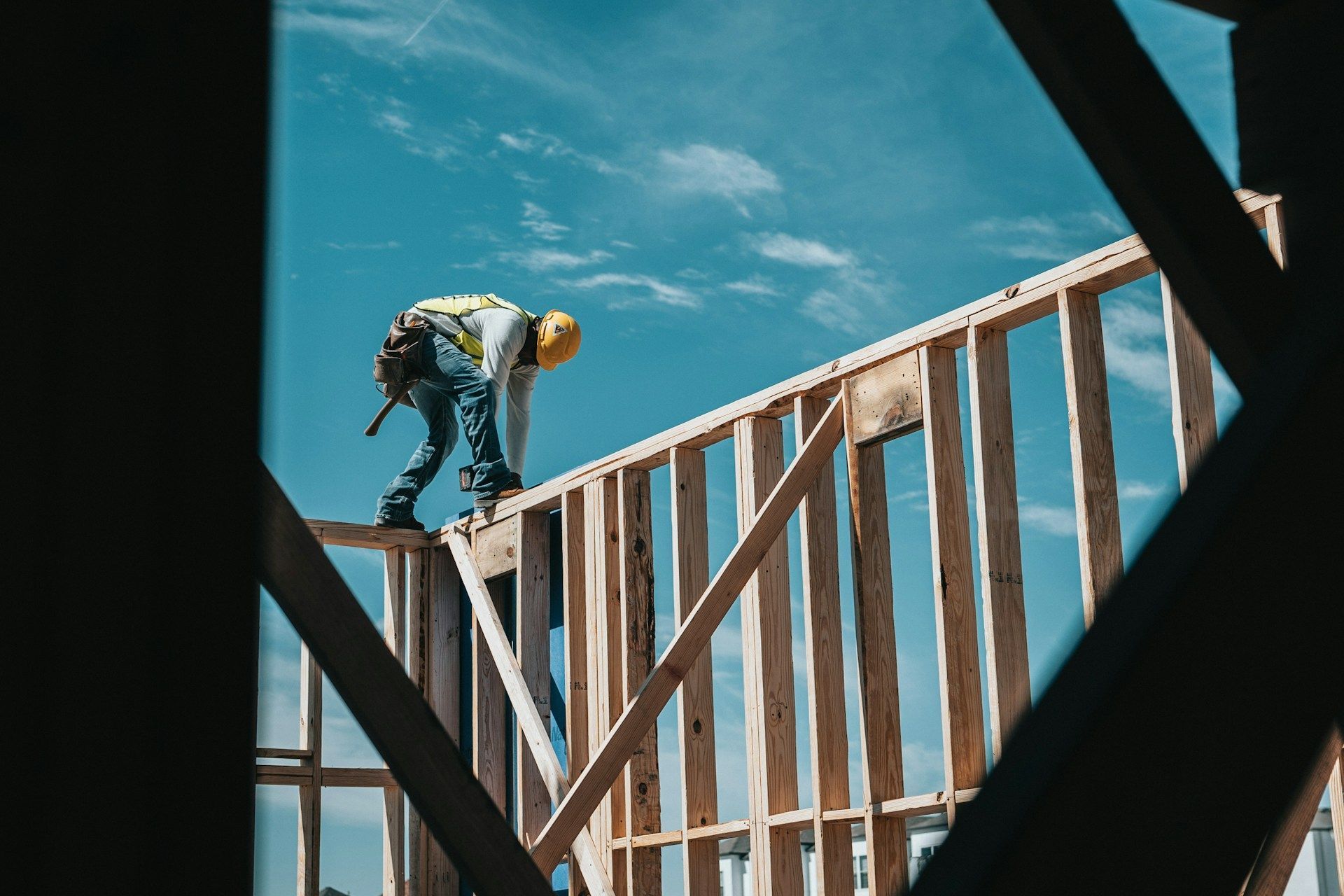Energy-Efficient Roofing Options: Enhance Your Home's Sustainability and Savings.
Considering energy-efficient roofing options can significantly reduce your energy costs while enhancing the comfort of your home. Metal roofing, tile roofs, and cool roofs are among the top choices that can help save you money and energy over time. Each option comes with unique benefits, ensuring there's a fit for every homeowner's needs.
When choosing a roofing option, it’s essential to factor in the long-term benefits these materials can offer. For instance, metal roofing can cut energy costs by up to 40%. By selecting energy-efficient materials, you not only reduce your environmental footprint but also increase your home's value.
At Jersey Strong Roofing, our experienced team understands the diverse roofing needs across New Jersey. You can trust us to guide you in selecting the best energy-efficient roofing solution tailored to your home, backed by our commitment to quality and customer satisfaction.
Fundamentals of Energy-Efficient Roofing
Energy-efficient roofing systems play a crucial role in enhancing your home’s overall energy performance. By focusing on thermal resistance, heat gain reduction, and proper insulation and ventilation, you can significantly lower your energy bills and improve indoor comfort.
Understanding Energy Efficiency in Roofing
Energy efficiency in roofing primarily relates to the materials and design choices that influence heat retention and transfer. One important factor is thermal resistance, commonly measured by R-value. The higher the R-value, the better the roof resists heat flow, keeping your home warmer in winter and cooler in summer.
Reflective roofing materials can minimize heat gain during hot months, reducing the need for air conditioning. Metal roofing, for instance, offers excellent reflectivity and durability. Various options like tile and cool roofs also contribute to energy savings.
Professionals at Jersey Strong Roofing can guide you in selecting the best energy-efficient roofing materials tailored to your specific needs, ensuring long-lasting performance.
Importance of Insulation and Ventilation
Proper insulation and ventilation are key components of an effective energy-efficient roofing system. Insulation prevents unwanted heat exchange, keeping your home comfortable and reducing energy costs.
Inadequate insulation can lead to heat loss in winter and excess heat retention in summer. Quality materials enhance thermal performance and minimize heat gain.
Ventilation, on the other hand, facilitates air circulation, reducing humidity and controlling indoor temperature. A balanced roof ventilation system helps in exhausting hot air and conserving energy.
Choosing Jersey Strong Roofing ensures you receive expert advice on insulation and ventilation strategies to optimize your roofing system's performance. This will ultimately save you money and enhance comfort in your home.
Energy-Efficient Roofing Materials
When considering energy-efficient roofing options, understanding materials that enhance thermal performance and reduce energy costs is vital. Various categories, such as cool roofing options, reflective materials, and sustainable roofing solutions, provide unique benefits to homeowners and commercial property owners alike.
Cool Roofing Options
Cool roofs feature materials designed to reflect more sunlight and absorb less heat than traditional roofing. These roofs can substantially reduce building temperatures, which translates into lower energy costs for cooling.
Popular materials for cool roofs include high-reflectance shingles, tile, and unique coatings. These materials can reflect up to 70% of sunlight, keeping your home cooler during warm months. Investing in a cool roofing system not only helps save on energy bills, but also prolongs the lifespan of your roof.
Reflective Materials and Coatings
Reflective roofing materials and coatings are crucial for minimizing heat absorption. Metal roofs, for example, are known for their energy efficiency and can be treated to enhance their reflectiveness.
Using special coatings on existing roofs can also transform them into energy-efficient systems. These reflectivity-enhancing coatings are often white or light-colored, designed to minimize heat retention. Jersey Strong Roofing specializes in applying these coatings, ensuring your roof operates at peak efficiency.
Sustainable Roofing Solutions
Sustainability in roofing involves the use of materials that minimize environmental impact while still providing energy efficiency. Green roofs, which incorporate vegetation, are an excellent option for both commercial and residential buildings.
Tile roofing is another sustainable choice due to its durability and ability to be made from recycled materials. Choosing sustainable options often leads to certifications that may increase your property’s value. Jersey Strong Roofing promotes sustainable practices, helping you make environmentally friendly choices that also enhance energy efficiency.
Comparing Roofing Materials
When selecting roofing materials, it's essential to consider factors like cost, durability, and energy efficiency. Each option has distinct advantages and drawbacks that can affect your long-term investment and comfort.
Metal vs. Asphalt Shingles
Metal roofing offers significant longevity, often lasting 40-70 years with minimal maintenance. It excels in durability against harsh weather, resisting winds up to 140 mph. Additionally, it reflects solar heat, which can reduce cooling costs.
In contrast, asphalt shingles are more affordable, costing between $90 to $100 per square, making them popular for budget-conscious homeowners. While they last 20-30 years, they are more susceptible to wind damage and require regular maintenance. Jersey Strong Roofing emphasizes that choosing metal might be more beneficial over time despite a higher initial investment.
Tile and Membrane Options
Tile roofing, including concrete and clay tiles, provides excellent durability and aesthetic appeal. These tiles can last 50 years or more, and their heavy weight ensures they withstand severe weather. They also have high solar reflectance, helping keep homes cooler.
Membrane roofing, often used in commercial settings, comprises materials like TPO and EPDM. These options are cost-effective and provide a waterproof barrier. While they generally last 15-25 years, their installation requires specialized skills. Jersey Strong Roofing is experienced in assessing your specific needs when considering these roof types.
Innovations in Roofing Technology
Innovations such as cool roofing and green roofing systems are gaining traction. Cool roofs utilize reflective materials to lower temperatures, enhancing energy efficiency and decreasing urban heat. This approach is suitable for both residential and commercial buildings.
Green roofing involves planting vegetation on roofs, improving insulation and stormwater management. While both systems generally come at a higher upfront cost, their long-term benefits include reduced energy expenses and extended roof life. Understanding these options can enhance your home’s efficiency and longevity.
Roofing Designs and Their Efficiency
The design of your roof plays a crucial role in energy efficiency. Specific design features, as well as material choices and color, can significantly impact energy savings and cooling costs.
Impact of Roof Design on Energy Savings
Certain roof designs can enhance energy efficiency by promoting better airflow and insulation. For instance, hipped roofs allow for improved ventilation, reducing heat buildup and cooling costs.
Mansard roofs offer excellent insulation potential due to their unique structure. Their double-pitched design encourages air circulation, further enhancing energy efficiency.
Additionally, roofs with steep slopes tend to shed water and snow more effectively, avoiding potential leaks and deterioration.
Taking these aspects into account when choosing a roof design ensures that your investment maximizes energy savings over time.
Color and Material Considerations
The color and material of your roof also influence its energy efficiency. Light-colored roofs typically have higher solar reflectance indices (SRI), which means they reflect more sunlight, reducing heat absorption.
Materials like metal, tile, and asphalt shingles are popular for their energy-efficient properties. Metal roofing, for example, can reduce energy costs by up to 40%.
Opting for highly reflective coatings can further enhance energy efficiency. When choosing materials, consider both durability and insulation properties to prevent future costs.
Choosing Jersey Strong Roofing ensures you'll have access to top-quality materials and designs tailored to optimize energy efficiency and protect your investment.
Installation and Maintenance of Energy-Efficient Roofs
Proper installation and maintenance of energy-efficient roofs are crucial for optimizing their performance and extending their lifespan. Attention to detail during installation ensures optimal energy savings and indoor comfort. Regular maintenance keeps your roof in top condition, enhancing your home’s value and reducing energy bills.
Best Practices for Installation
When installing energy-efficient roofs, start by ensuring proper ventilation. Adequate airflow prevents moisture buildup and enhances energy efficiency.
Select high-quality materials suited to your climate. For instance, metal or tile roofs provide excellent insulation properties. During installation, make sure to follow local building codes and manufacturer guidelines to maintain warranties.
Hiring a professional roofing contractor is essential. Jersey Strong Roofing offers expertise in identifying your specific needs. This guarantees that your roof will perform effectively and provide long-term benefits.
Ongoing Maintenance and Care
Regular maintenance is vital for energy-efficient roofs to ensure their longevity. Schedule annual inspections to identify wear and tear early. This includes checking for damage, debris buildup, and ensuring that flashing and seals are intact.
Maintain proper ventilation to avoid moisture accumulation, which can lead to mold or structural issues. Clean gutters and downspouts to ensure efficient water drainage.
Additionally, consider seasonal maintenance. After storms, inspect for damage, and address any issues promptly. Utilize Jersey Strong Roofing for professional maintenance services, which protect your investment and help manage energy bills effectively. Regular upkeep contributes significantly to indoor comfort and the overall value of your home.
Environmental and Economic Impact of Efficient Roofing
Implementing energy-efficient roofing options significantly influences both the environment and your wallet. These systems reduce energy costs and mitigate urban heat issues while promoting sustainability.
Reducing Heat Island Effect
Many urban areas face the heat island effect, where built environments absorb and retain heat, leading to higher temperatures. Energy-efficient roofing materials, such as reflective coatings and lighter shingles, help combat this issue. By reflecting sunlight rather than absorbing it, these roofs can lower surface temperatures.
This reduces the overall heat in your immediate environment, leading to cooler buildings and less reliance on air conditioning. According to studies, implementing such roofing solutions can decrease urban temperatures by up to 5°F. As a result, you not only enhance comfort but also contribute to lower energy demands in your community.
Cost-Effectiveness and Energy Bills
Switching to energy-efficient roofing can lead to substantial savings on energy bills, especially during peak heating and cooling seasons. These materials improve insulation, which directly affects your heating and cooling costs. You may see reductions in energy expenses of 20-40%, depending on the materials used and your climate.
Investing in efficient roofing is also an excellent long-term financial decision. Though initial costs may be higher, the savings over time on energy bills and potential tax incentives make it worth considering. Trust Jersey Strong Roofing for comprehensive solutions designed to maximize your roofing investment while ensuring durability and efficiency. Your commercial or residential property deserves the best protection against the elements.
Frequently Asked Questions
Energy-efficient roofing options provide various materials and techniques to enhance the sustainability of your home. This section addresses common inquiries related to materials, coatings, benefits, and cost-effective methods for achieving efficiency.
What are the top materials used for energy-efficient roofing?
The most popular materials for energy-efficient roofing include metal, clay tiles, and asphalt shingles. Metal roofs are highly reflective, which helps reduce heat absorption. Clay tiles also offer excellent thermal properties, while advanced asphalt shingles are designed to deflect heat and improve insulation.
How do cool roof coatings contribute to energy efficiency?
Cool roof coatings reflect more sunlight and absorb less heat than standard products. This can significantly reduce cooling costs in warmer months by lowering the roof surface temperature. Applying such coatings can extend the lifespan of your roof, making it a smart investment.
What are the benefits of ENERGY STAR-rated roof shingles?
ENERGY STAR-rated shingles are designed to meet energy efficiency standards set by the EPA. These shingles reflect more sunlight, which helps lower roof temperatures. Additionally, they can contribute to energy savings on cooling costs and may qualify for specific tax credits.
Can you receive tax credits for installing an energy-efficient roof?
Yes, installing an energy-efficient roof can make you eligible for certain tax credits. These credits often apply to modern roofing materials that meet specific energy performance standards. Check IRS guidelines for detailed eligibility requirements and the application process.
Which roofing options are best for maintaining cooler house temperatures?
Metal roofs, clay tiles, and cool roof coatings are among the best choices for maintaining cooler temperatures indoors. Their reflective properties minimize heat absorption, leading to a more comfortable living environment. Investing in these options will help reduce energy costs.
What are cost-effective methods for achieving an energy-efficient roof?
Cost-effective methods include regular maintenance, proper insulation, and using reflective materials. Regular inspections can identify issues early, preventing costly repairs. Insulation can enhance your roof's energy performance, while reflective materials reduce heat absorption, saving on cooling costs.
For comprehensive roofing solutions, consider partnering with Jersey Strong Roofing. Our dedicated team offers professional services tailored to your needs, ensuring your energy-efficient roofing project is handled smoothly.





